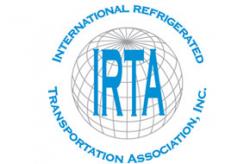Are there written standards for the storage of organic frozen foods?
Question: Are there any written standards for the storage of organic frozen foods?
Answer: According to federal regulations, the handler of a split organic/conventional (or transitional) operation must implement measures necessary to prevent commingling of organic and non-organic products and subsequent contact with prohibited substances. Cross-contamination can occur though volatilization, e.g. if apples have been treated with the scald inhibitor, diphenylamine (DPA), it is possible for other products near the apples to become contaminated by the DPA volatilization.
There are no specified space requirements. However, I can make the following recommendations:
- Do not store organic and non-organic products on the same racks. Keep them at least an aisle apart.
- Take the time to understand which products are being stored and how they are packaged, and make sure that your employees also have a good understanding on the importance of keeping these products separate.
- The likelihood of cross-contamination is minimized if products are well packaged.
- In addition, always think of the unexpected. You may want to use separate forklifts or at least clean them after non-organic use and before using them for organic products.
- Finally, keep in mind that certain cleaners and sanitizers are not approved for organic products.
Other than that, the recommend handling of products is the same regardless of if they are organic or not. Below is additional detail:
The cold storage industry merely holds, receives and ships foods. The food processing industry is responsible for receiving raw food materials, processing them, packaging and labeling the finished products, and storing/shipping the packaged items to the marketplace. The food processing industry must adhere to all federal regulations concerning food safety and food labeling of foods in interstate commerce. The storage industry has no responsibility for the validity/accuracy of labels on foods in interstate commerce; rather their responsibility is to assure that "organic foods" are stored in their facilities in such a fashion that they are not intermingled with so-called non-organic foods and are stored/shipped at appropriate temperature/humidity in adequately clean/sanitized environment. The responsibility of the cold storage industry is to ensure that organic products are stored at the proper temperature and humidity for the product type (the temperature and humidity requirements are no different than for similar type non-organic products), follow GMPs and good sanitation practices, and ensure proper separation so that that there is no accidental co-mingling with non-organic products.
Answer provided by Dr. Michael Jahncke, Virginia Polytechnic University & WFLO Scientific Advisory Council (SAC) Chairman.
Have a question?
![]() We have an answer. Submit your questions to the GCCA Inquiry Service. From legal issues to food storage or handling questions, we work with industry experts and scientists to find you answers.
We have an answer. Submit your questions to the GCCA Inquiry Service. From legal issues to food storage or handling questions, we work with industry experts and scientists to find you answers.



